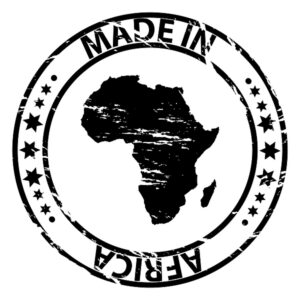Check the label on your shirt — Made in Ghana? Lesotho? Liberia? Kenya?
Probably not.
When more than 95 percent of apparel and footwear is imported, and when a far-reaching goal is to diversify reliance on China, it’s time for this to change.
For more than 23 years, the African Growth and Opportunity Act (AGOA) has driven various U.S./African commercial relationships. During that time, AGOA has anchored a robust foreign policy partnership between the United States and countries in sub-Saharan Africa. This partnership is vital in an increasingly multipolar world that requires the United States to deepen relationships globally.
Last month, senators Chris Coons (D-Del.) and Jim Risch (R-Idaho) introduced legislation to extend AGOA for an additional 16 years. The AGOA Renewal and Improvement Act of 2024 has thoughtful improvements that the apparel and footwear sector welcomes and have far-reaching benefits for global economies.
What is AGOA, and what does it mean?
Set to expire in September 2025, AGOA is a pivotal trade preference program that provides duty-free access to 1,800 products to the U.S. market, fostering economic growth and opportunity between the United States and eligible sub-Saharan countries.
While we know of duty-free goods at the airport, it is worth noting that everyday purchases of apparel and footwear are taxed beyond belief. In fact, U.S. footwear importers have been paying more than four times the duty rate paid on most other U.S. imports, and apparel importers pay more than five times higher. Tariffs are taxes, which means higher costs for U.S. companies and consumers. This is a hidden, regressive tax — hiding in plain sight.
AGOA is an investment success story, combining duty-free benefits with state-of- the-art, flexible rules of origin. Being able to produce and ship goods to the U.S. market free from this tax saves American consumers and families money while building up African economies — decidedly improving lives and livelihoods in the region.
As sub-Saharan Africa continues to invest in and grow a vertical supply chain, some yarns and fabrics must be brought in from other countries. Together, the duty-free benefit and the “third-country fabric provision” (allowing yarns and fabrics from non-AGOA countries to be used in the production of a garment) offer AGOA countries a competitive advantage and provide U.S. companies the incentive to
invest and grow their business on the continent.
AGOA is an important program for U.S. companies. It’s an opportunity to ensure this development benefits a traditionally underserved population — women, who comprise a large part of the African workforce. As companies expand their operations there, they create jobs and foster skills development and entrepreneurial opportunities for workers.
Moreover, investments in this workforce benefit families and communities, multiplying the economic opportunities created through apparel and footwear sourcing.
Though the AGOA expiration date is a year away, U.S. investment in the region faces mounting uncertainty. U.S. companies are poised to diversify out of China, and Africa is a logical place for many of them. AGOA continues to be a reason U.S. companies are in Africa and why they are looking at expanding their business there.
As we approach AGOA’s September 2025 expiration date, we hope that the AGOA Renewal and Improvement Act of 2024 will pass and be signed into law. U.S. companies are placing orders now for next year’s products. A long-term AGOA renewal will provide much-needed certainty for U.S. companies and their African workforce.
If Congress delays renewing AGOA, it sends a powerful message that the United States is unwilling to prioritize a strong U.S./Africa relationship. At a time when the United States is working to reinforce partnerships globally, we cannot afford to overlook an entire continent.


